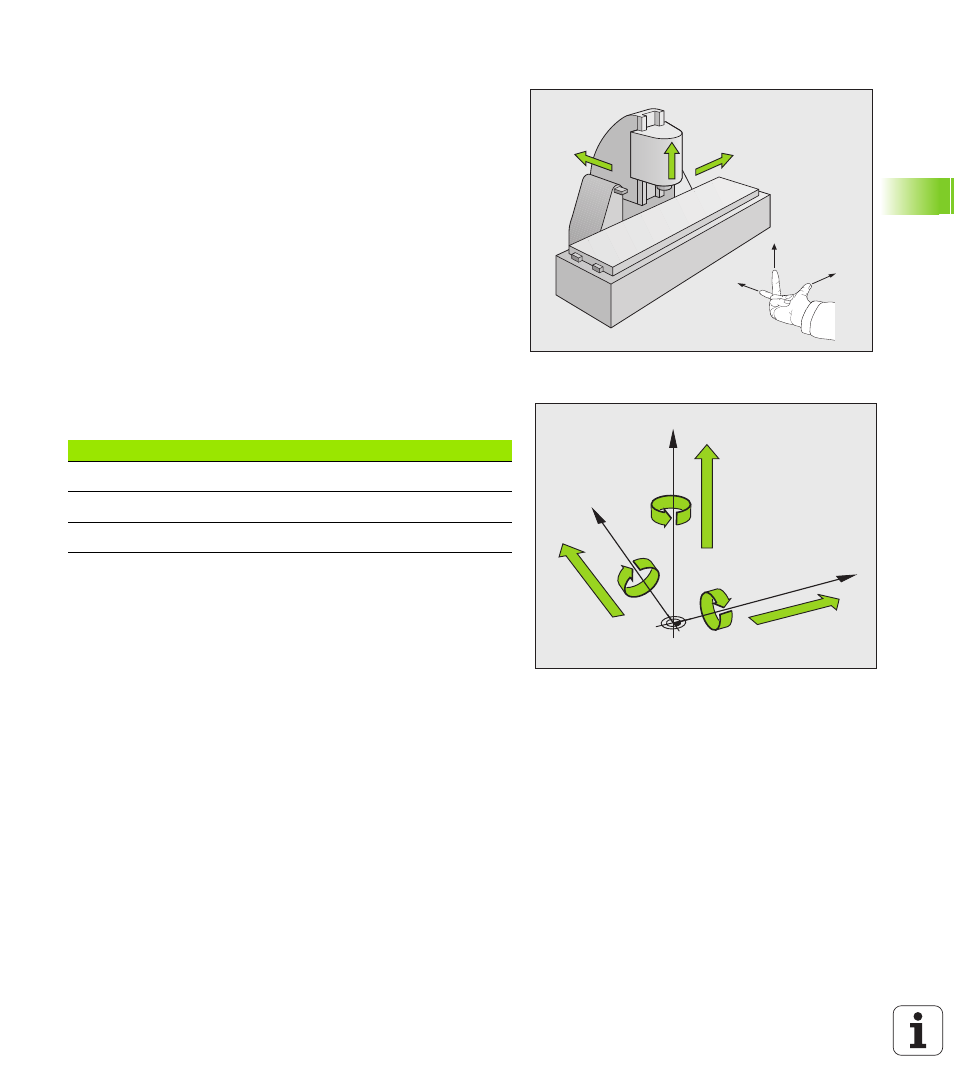Reference system on milling machines, Designation of the axes on milling machines, 1 f undamentals – HEIDENHAIN TNC 620 (340 56x-01) User Manual
Page 75

HEIDENHAIN TNC 620
75
4.1 F
undamentals
Reference system on milling machines
When using a milling machine, you orient tool movements to the
Cartesian coordinate system. The illustration at right shows how the
Cartesian coordinate system describes the machine axes. The figure
illustrates the right-hand rule for remembering the three axis
directions: the middle finger points in the positive direction of the tool
axis from the workpiece toward the tool (the Z axis), the thumb points
in the positive X direction, and the index finger in the positive Y
direction.
As an option, the TNC 620 can control up to 5 axes. The axes U, V and
W (which are not presently supported by the TNC 620) are secondary
linear axes parallel to the main axes X, Y and Z, respectively. Rotary
axes are designated as A, B and C. The illustration at lower right shows
the assignment of secondary axes and rotary axes to the main axes.
Designation of the axes on milling machines
The X, Y and Z axes on your milling machine are also referred to as tool
axis, principal axis (1st axis) and minor axis (2nd axis). The assignment
of the tool axis is decisive for the assignment of the principal and
minor axes.
+X
+Y
+Z
+X
+Z
+Y
W+
C+
B+
V+
A+
U+
Y
X
Z
Tool axis
Principal axis
Minor axis
X
Y
Z
Y
Z
X
Z
X
Y
